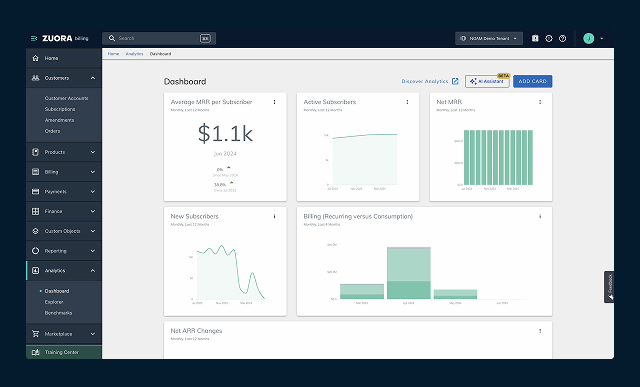In today’s rapidly evolving manufacturing landscape, finding the ideal tools to streamline operations is paramount. Enterprise Resource Planning (ERP) systems have become indispensable for manufacturers looking to optimize processes, cut costs, and maintain top-tier production quality. However, choosing the best ERP for manufacturing can be a challenging and time-consuming process.
In this comprehensive guide, we will delve into the best ERP systems for manufacturing, ensuring you have all the information necessary to make an informed decision for your business. Whether you’re a small manufacturer or a large enterprise, our goal is to help you discover the best ERP system for manufacturing and elevate your operations.
Understanding the Crucial Role of ERP in Manufacturing
Before we explore specific ERP systems for manufacturing, let’s underscore the pivotal role ERP plays in this industry. ERP software acts as a centralized hub, seamlessly integrating various facets of your business, from production planning and inventory management to supply chain and finance. This integration empowers manufacturers to make data-driven decisions, swiftly respond to market fluctuations, and enhance overall operational efficiency.
Manufacturers encounter unique challenges, including demand forecasting, inventory optimization, and production scheduling. The right ERP system is custom-built to address these challenges, ultimately leading to reduced lead times, efficient resource allocation, and heightened customer satisfaction.
Key Criteria for Identifying the Best ERP System
When embarking on the quest for the best ERP system for manufacturing, several critical factors should guide your decision-making process. These criteria will serve as your compass, helping you pinpoint the system that aligns most closely with your business requirements:
- Industry-Specific Features: Prioritize ERP systems tailored explicitly for the manufacturing sector, equipped with features such as bill of materials (BOM) management, work order tracking, and production scheduling.
- Scalability: Opt for an ERP system capable of seamless expansion alongside your business. As your manufacturing operations flourish, your chosen software should adapt effortlessly.
- Integration Capabilities: Confirm that the ERP system can seamlessly integrate with your existing software solutions, including CAD/CAM systems, CRM, and e-commerce platforms.
- User-Friendly Interface: A user-friendly interface is crucial for the smooth adoption of your ERP system by your team. Complex ERP systems can result in resistance and inefficiencies.
- Cost-Effectiveness: Delve into the total cost of ownership, considering both upfront expenses and ongoing costs, including licensing, implementation, and maintenance.
- Vendor Reputation: Research the reputation and track record of ERP vendors. Customer reviews and case studies offer valuable insights into the reliability and performance of these systems.
Best ERP Systems for Manufacturing: Best Options for Your Business
Now, let’s delve into some of the most highly regarded ERP systems for manufacturing, ensuring that your quest to discover the best ERP for manufacturing is well-informed and productive:
1. SAP S/4HANA:
- Key Features: SAP S/4HANA stands out with its robust manufacturing capabilities, encompassing advanced planning and scheduling, production execution, and quality management.
- Benefits: This ERP system provides real-time insights, enabling precise production optimization, reduced lead times, and enhanced product quality.
- Scalability: SAP’s renowned scalability makes it suitable for manufacturers of all sizes, from small businesses to large enterprises.
2. Oracle NetSuite:
- Key Features: NetSuite offers an extensive array of manufacturing functionalities, spanning demand planning, shop floor control, procurement, and order management.
- Benefits: It provides a unified platform for streamlining all business processes, fostering visibility across your organization.
- Scalability: NetSuite accommodates the growth of manufacturing businesses and caters to the needs of multi-location operations.
3. Microsoft Dynamics 365 for Finance and Operations:
- Key Features: Microsoft Dynamics 365 for Finance and Operations boasts a comprehensive suite of manufacturing modules, including production control and shop floor management.
- Benefits: Its seamless integration with Microsoft’s productivity tools, such as Office 365, enhances collaboration and boosts overall productivity.
- Scalability: The system remains adaptable, evolving in tandem with the changing requirements of manufacturers.
4. Infor CloudSuite Industrial (SyteLine):
- Key Features: Infor’s CloudSuite Industrial has been tailor-made for manufacturing, incorporating advanced planning and scheduling, quality management, and product lifecycle management.
- Benefits: Its focus on improving operational efficiency and reducing costs equips manufacturers with a competitive edge.
- Scalability: Infor offers flexibility, catering to businesses of all sizes and making it a versatile choice.
5. Plex Systems:
- Key Features: Plex Systems offers a cloud-based ERP solution meticulously tailored for manufacturing, covering essential aspects such as production, inventory, and quality management.
- Benefits: It delivers real-time visibility into your manufacturing operations, empowering proactive decision-making.
- Scalability: Plex Systems stands prepared to meet the unique needs of manufacturers across various industries, offering adaptable solutions.
6. Acumatica:
- Key Features: Acumatica presents a flexible and scalable cloud ERP solution fortified with manufacturing capabilities, encompassing production management, material requirements planning (MRP), and order management.
- Benefits: Its cloud-based approach ensures easy accessibility and collaboration, fortified by robust manufacturing features.
- Scalability: Acumatica caters to small to midsize manufacturers in pursuit of an adaptable ERP solution.
7. Epicor ERP:
- Key Features: Epicor delivers a comprehensive ERP solution explicitly designed for manufacturing, covering areas such as production scheduling, quality control, and supply chain management.
- Benefits: It provides industry-specific solutions tailored to address the unique requirements of manufacturers, driving efficiency and profitability.
- Scalability: Epicor ERP remains flexible enough to grow in harmony with your business, rendering it a fitting choice for manufacturers of varying sizes.
Conclusion
By carefully considering these top ERP systems for manufacturing, you can evaluate which one aligns most closely with your distinctive business prerequisites. Whether your primary focus is enhancing efficiency, slashing costs, or elevating product quality, selecting the right ERP system can propel your manufacturing operations to new heights. Seize the opportunity to make an informed decision today and set your business on the path to success within the dynamic realm of manufacturing.




